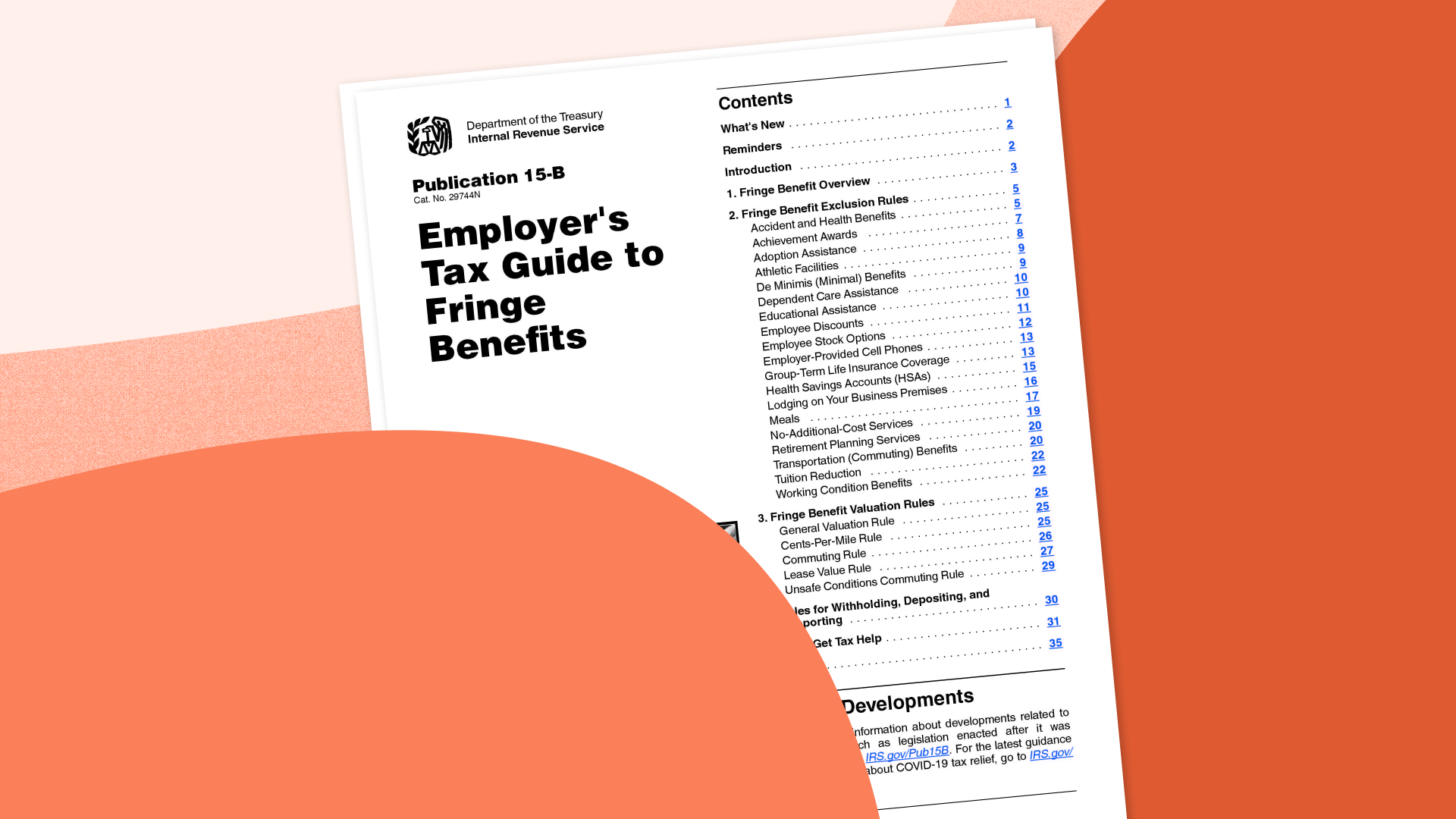What is a Payroll Audit?
The Payroll Audit Process
Step 1: Planning and Preparation
Step 2: Data Collection and Analysis
Step 3: Verification of Compliance
Step 4: Reporting Results
Step 5: Post-Audit Follow-Up
The Purpose of Payroll Audits
Ensuring Accurate Compensation
Compliance with Tax Laws and Regulations
Identifying Fraudulent Activity
Improving Payroll Processes
Protecting the Company's Reputation
Staying Prepared for a Payroll Audit
Maintain Accurate Records
Review Payroll Procedures
Educate Employees
Seek Professional Assistance
Justworks for Payroll Support
Are payroll audits actually important for small businesses? Absolutely.
Regardless of how long an organization has been in business, it’s essential to periodically conduct payroll audits. This not only helps ensure the integrity of the company’s payroll process, but it is also critical to verify compliance with various payroll-related regulations.
The payroll audit process serves several important purposes, including identifying errors or discrepancies in payroll records, making sure employees are being paid correctly, and ensuring that the company's financial statements are accurate in terms of payroll data. By taking the time to understand what’s included in a payroll audit and the importance of regular audits, you can play an important role in keeping your small business compliant and operating smoothly.
What is a Payroll Audit?
A payroll audit is a systematic review of a company's payroll processes to ensure accuracy and compliance with tax laws as they relate to payroll, labor regulations, and internal policies. An audit can uncover payroll mistakes that could lead to financial loss, legal issues, or damage to the company's reputation if not detected internally within a reasonable timeframe.
There are several types of small business payroll audits, including internal audits conducted by the company’s own audit department, external audits by third-party firms, and audits by government agencies. Regardless of type, the primary purpose of payroll audits is to ensure compliance with wage and hour law, as well as other related employment laws.
The Payroll Audit Process
Payroll audits follow a structured process designed to ensure that each aspect of payroll is scrutinized for accuracy and compliance.
Step 1: Planning and Preparation
Conducting an effective payroll process begins with thorough planning. Planning for a payroll audit includes defining the audit's scope, establishing objectives, and determining the timeline. Once those items have been determined, the auditor will further prepare for the audit by reviewing company policies and procedures that are relevant to payroll.
Step 2: Data Collection and Analysis
The next step of the audit process involves collecting and analyzing payroll data. The auditor will start by collecting payroll records for the defined audit timeframe, including timesheets, pay rates, payroll tax withholdings, and other pertinent information. This process can be expedited if your company has HR software that includes payroll processing. The auditor will analyze this data to determine if there are any inconsistencies, errors, or fraudulent activity.
Step 3: Verification of Compliance
The auditor will seek to verify whether the organization’s payroll practices comply with all relevant tax laws and employment regulations, including federal, state, and local requirements. This step is a crucial aspect of the audit process, as it identifies compliance concerns for management to address, which can help prevent penalties or legal action against the company for noncompliance.
Step 4: Reporting Results
After completing the steps above, the auditor’s final task will be to prepare a report detailing any issues or discrepancies found, along with their recommendations for correcting any problems and suggestions for improving the company’s payroll system.
Step 5: Post-Audit Follow-Up
Once an audit is complete, the company should address the findings and implement the auditor's recommendations. It’s a good idea to schedule a follow-up audit to help ensure that any corrective actions implemented by the company have been effective
The Purpose of Payroll Audits
Payroll audits serve multiple purposes, from ensuring accurate payments to employees to complying with regulatory requirements and more. They are essential for businesses for a variety of reasons, including:
Ensuring Accurate Compensation
One of the primary goals of a payroll audit is to ensure that employees are being compensated correctly for their work. This includes verifying that hours worked, pay rates, and overtime calculations are correct.
Compliance with Tax Laws and Regulations
Payroll audits help verify that the company complies with tax laws and regulations, such as accurate tax withholdings and timely tax payments.
Identifying Fraudulent Activity
Payroll audits can uncover fraudulent activities that can lead to significant financial losses. For example, audits can uncover things like ghost employees on the payroll or unauthorized changes to pay rates.
Improving Payroll Processes
Through the identification of weaknesses or inefficiencies in the payroll process, audits can help improve the overall payroll system, which can ultimately lead to better management of the company’s payroll expenses.
Protecting the Company's Reputation
Accurate payroll practices are essential for maintaining a positive reputation. Payroll errors can lead to employee dissatisfaction and tarnish the company's image, while fraudulent activities can damage the company’s reputation and lead to severe consequences for the business as a whole and any involved individuals.
Staying Prepared for a Payroll Audit
The best way to prepare for a payroll audit is to conduct your payroll procedures as if you are always just about to be audited. Doing things correctly on a consistent basis can help make the audit process go smoothly and efficiently, with only occasional minimal findings. Follow the tips below and you’ll be ready for your next audit.
Maintain Accurate Records
Keep detailed and organized payroll records, including employee pay stubs, time records, W-4 forms, and other tax documents.
Review Payroll Procedures
Regularly review your payroll procedures to ensure they align with current laws and best practices. Rather than waiting for your next audit to implement changes that you know need to be made, it’s best to adjust payroll practices as the need arises.
Educate Employees
Inform employees about the importance of accurate time reporting and adherence to payroll policies. Be sure to include this in your employee handbook, as well as to periodically remind employees about this important aspect of their jobs.
Seek Professional Assistance
Internal payroll audits are helpful, but a third-party perspective can sometimes be very helpful. With that in mind, it’s a good idea to periodically engage an external auditor or payroll consultant to conduct a payroll audit for your company. Additionally, if your company is facing an audit by the Department of Labor or another government agency, you may want to enlist the services of an outside expert to help prepare.
Justworks for Payroll Support
Payroll management certainly isn’t the easiest aspect of running a small business. DIY payroll can be a headache, but working with a payroll services provider is a great option for small businesses, and Justworks Payroll is here to help.
We simplify payroll processing and compliance so you can focus your efforts on building a successful business rather than draining your energy with administrative tasks. Our user-friendly payroll software is a scalable solution designed with growing small businesses in mind. From new hire setup and timekeeping to paying employees and providing them with self-serve access to real-time payroll data, it’s never been a better time to get started with Justworks.
Learn more with Justworks’ Resources
Scale your business and build your team — no matter which way it grows. Access the tools, perks, and resources to help you stay compliant and grow in all 50 states.







